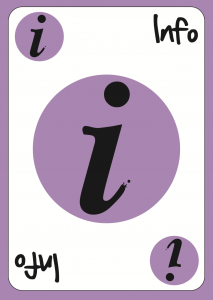How to use it:
Do your research on the issue that you are studying. This could include all of the necessary facts, as well as some suggestions on the way that other people have done the same work in the past.
An example:
You are studying online computer games. Find out the titles of ten different games, and list five key characteristics of each game. Then ask several people for their opinion of each of the games, and graph all of this information.
Why it’s important to use it:
Making lists of information is a great basis for taking your thinking further. Coming up with new ideas is fine, but you firstly need to find out as much as you can about the issue.
Some variations:
Develop some different lists eg
- Most to least interesting (eg TV programs)
- A to Z (eg different emotions or moods starting with every letter)
- Biggest to smallest (eg the 20 biggest cities in the world)
- Most to least expensive (eg fun activities)
- Highest to lowest (eg mortality rates in different countries)
- Longest to shortest (eg time taken for various tasks)
- Smallest to largest (eg time it takes to plan different activities)




